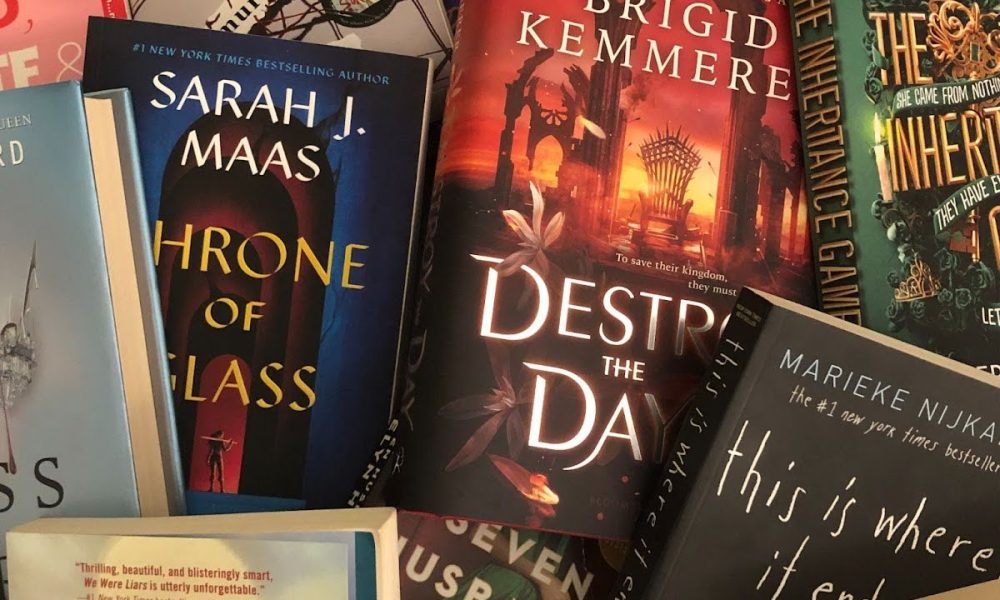Reading for clout?
“Considering their only job was to read books they posted an amount of books that the average person with work or school couldn’t read.”
Over time, we have seen people carelessly consume things they don’t need without any regard for how it affect the environment or others, but I never thought this would apply to books. In recent years, creators on social media have been sharing the books they read and their opinions on them which led to creators whose whole accounts are just videos of them standing in front of their filled-to-the-brim bookshelves. They post book hauls of tens of books and monthly wrap-ups where they claim to have read more books than days in the month. Viewers saw this repeatedly and began to think this is what they should be doing, leading readers to buy and read millions of books a month to be like the creators they see online.
Obviously, this idea is irrational because a normal person with school or work can’t read as much as the book influencers online, but people do it anyway. It was difficult to see the emotional or mental impact that this mindset had on people but the physical was very obvious. It created book overconsumption which is when someone owns more books than needed and it may not sound too bad but when you take into account all the paper that is used when these readers buy new books, it becomes concerning. Instead of excessively buying new books readers should look for more sustainable options or read the books they already own.
When the book community first became big after the pandemic, a side of TikTok dedicated to books was created called BookTok. As it became more popular even bookstores created book displays titled “BookTok Books.” These were the books that everyone was talking about on BookTok with titles such as “We Were Liars,” “It Ends With Us,” and “Red, White, & Royal Blue.” These books got a lot of people into reading at the time, but what about the people who wanted something different? Finding different books on BookTok was very difficult at the time because the people on BookTok kept talking about the same books over and over again. Viewers bought BookTok Books due to how popular and widely loved they were hoping they would like them but when they didn’t they just kept buying BookTok books because it was the only thing showing up on their TikTok feed.
As the job of being a social media influencer was gaining popularity BookTok became full of people whose job was to read books and post their reactions, opinions, and recommendations across social media platforms. Considering their only job was to read books they posted an amount of books that the average person with work or school couldn’t read. Most watched these videos of book influencers for enjoyment while some took the amount of books the influencers were reading as an amount they should be reading too. It didn’t help that the comment section on videos would have a lot of discussion about the amount and not as much about the quality of the books. Due to this quantity over quality mindset, videos were created with short book recommendations that could help to “reach your reading goal.” But why must we make reading something we put a goal towards? Shouldn’t we just be doing it for entertainment as it was created for? Jess Bacon, a writer for Dazed, shared a quote capturing the problematic parts of BookTok saying “It can be intimidating to join BookTok because there’s such an emphasis on the amount of books you read, own and buy…The lifestyle of reading hundreds of books a year and buying 50 books a month is unattainable for the average person.”
When I say that in the early years of BookTok they only focused on the same books, I mean it. Everyone was overconsuming the same BookTok books because they had heard of them from the same place. When publishing houses caught on to the overconsumption trend, they decided they had to overproduce every book they could. But these publishing houses didn’t take into account that popularity on BookTok was a reason some books were selling a lot. This meant that many of the books being produced that didn’t make BookTok weren’t bought as much as the publishing houses thought they would be. So, as these unread books sat on bookstore bookshelves for months, the materials used to make them could have gone to producing other books in demand but instead precious materials were wasted.
Most people who participate in book overconsumption recognize that it is wrong but there are always a few others who try to defend their choices. The biggest argument is that it supports authors. While it’s a great thing to support authors, buying their books isn’t always the best way to do it. For starters, Book Riot reports that authors make 5%-20% from selling print books, meaning that authors make so little from their books no matter how much they sell. Plus there are other ways to support authors like writing reviews or just recommending their books to friends. While it is helpful to continue to promote books on platforms such as BookTok instead of saying that the book is good and that the viewer needs to buy it, they can describe the book more so the viewer can get a better sense of whether or not they’d like it. Another reason for overconsumption I’ve seen is some readers don’t like borrowing or sharing books with other people. To combat this they can go to their local library instead, but if they really need to own every single book they read they can purchase a used copy instead from websites such as ThriftBooks or AbeBooks.
BookTok creating the resurgence of books has changed my life for the better. Last year I read more than I ever have and most of the media I consume online has something to do with books, whether that’s new releases, book recommendations, or reading vlogs. While I thank social media for introducing me to the world of reading, I do acknowledge all of the bad parts of the book community on social media. While you can choose what to do with your time and money, I advise you to take into account that people online have different lives from your own and you do not have to sacrifice your time to appeal to their standards. Also, when doing your book buying, remember that there are more environmentally friendly options such as buying used and library books. Do your part in ending the overconsumption of books and saving the Earth’s precious resources.









